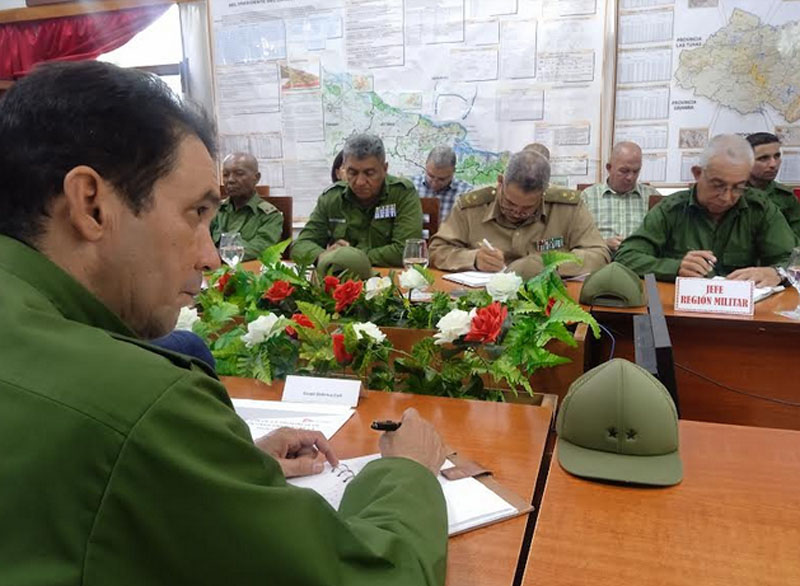Civil Defense control begins in Holguín
- Written by Yanela Ruiz González
- Published in Holguin
- Hits: 1026

Starting this Monday, the control visit of the General Staff of the Civil Defense, headed by its head in the country, Division General Ramón Pardo Guerra, takes place in the northeastern province of Holguín.
The visit aims to check the implementation of the documents that govern the Civil Defense system, with emphasis on Directive #1 of the president of the National Defense Council for the management of disaster risk reduction in the Republic of Cuba, issued in November 2022.

The working commission will also focus on checking the updating of plans and compliance with measures to mitigate disaster risks, the preparation of management and command bodies at different levels and the population to face dangers, as well as the forces and means destined to respond to events of a sudden, health and hydrometeorological nature, among others.
They will also evaluate the work of the province in relation to the State plan to confront climate change, specifically the Life Task and the process of making it compatible with economic and social development in the interest of Civil Defense.
Likewise, the operation of the surveillance and early warning systems provided for in the measures to protect the resources of the economy will be control objectives.
At the opening meeting, the member of the Central Committee and president of the Defense Council in the province, Joel Queipo Ruiz, referred to the characteristics of the territory from a geographical, economic and social point of view, the third most populated in the country, with marked tourism development and prospects for continuing to grow in this sector and with diverse agricultural and industrial activity, based mainly on the production of nickel and iron and steel.
Regarding the perception of disaster dangers, he commented that Holguín is hit by tropical cyclones and affected by extreme events such as drought and intense rains.
He added that attention is paid to seismic activity, the displacement of land in mountainous areas, forest fires and soil degradation, since its improvement is of maximum vitality for a task of national security, food production.
Queipo Ruiz pointed out that there are dangers related to automobile and railway transport accidents and radiological accidents, the latter observed in 38 economic objectives that handle toxic substances, the hydraulic situation, the collapse of buildings in poor condition and the epidemics and epizootics that can affect the region.
These issues will be also evaluated in the municipalities of Calixto García, Sagua de Tánamo, Frank País, Mayarí, Banes, Rafael Freyre and Gibara, the latter three affected by coastal flooding.
